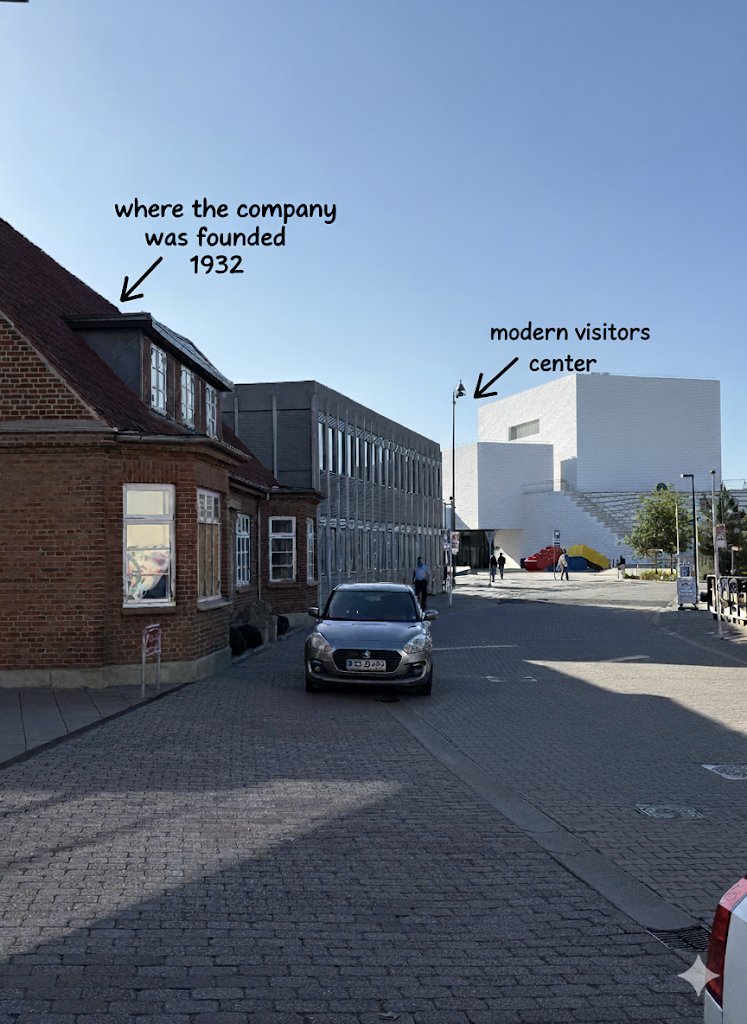Last year, I paid thousands of dollars for a physical at one of the best hospitals in America
I wanted to see how different healthcare was for the ultra-rich, and what this meant for the rest of the healthcare system
Here's what I learned:
I wanted to see how different healthcare was for the ultra-rich, and what this meant for the rest of the healthcare system
Here's what I learned:

I work in healthcare.
I was always aware that executive physicals— ultra-high-end, luxury concierge care— existed, but I had never met someone who went through one.
and now, due to an accident with my flexible spending account, I ended up with enough cash to try it out.
I was always aware that executive physicals— ultra-high-end, luxury concierge care— existed, but I had never met someone who went through one.
and now, due to an accident with my flexible spending account, I ended up with enough cash to try it out.
The core of an executive physical is a multi-day, exhaustive medical exam
advertised as a way to both optimize your health and mitigate long-term risks.
Almost every major academic medical center in America offers one at a cost of a few thousand dollars per year.
advertised as a way to both optimize your health and mitigate long-term risks.
Almost every major academic medical center in America offers one at a cost of a few thousand dollars per year.
To prevent losing the thousands I accidentally contributed to my FSA, I signed up for the eight-month waiting list to get a spot.
The appointment begins months before you arrive, with a set of intake surveys designed to match your health concerns to a battery of possible appt
The appointment begins months before you arrive, with a set of intake surveys designed to match your health concerns to a battery of possible appt
From this intake, they curate an onsite agenda. In my case, three twelve-hour days of specialist appointments and tests.
the schedule addresses both your stated concerns and includes an exhaustive panel hand-built to detect and address concerns appropriate for your age
the schedule addresses both your stated concerns and includes an exhaustive panel hand-built to detect and address concerns appropriate for your age

I received my 6-page schedule a few weeks before I was set to fly out.
The concierge called to make sure I had no additional concerns, helped me book a local hotel, arranged transport from the airport, and even offered to assist with dinner and entertainment reservations.
The concierge called to make sure I had no additional concerns, helped me book a local hotel, arranged transport from the airport, and even offered to assist with dinner and entertainment reservations.
On arrival, the visit could not be more unlike a normal hospital visit.
You are escorted to the "Executive Health Center" - a luxury WeWork-like space with Wi-Fi, a free catered kitchen, and call rooms so you can work while onsite.
This will be your home base during the visit.
You are escorted to the "Executive Health Center" - a luxury WeWork-like space with Wi-Fi, a free catered kitchen, and call rooms so you can work while onsite.
This will be your home base during the visit.

Every piece is curated—there's a dedicated desk to assist with any scheduling worries, and handlers to make sure you don't get lost.
The executive lounge, even on a sub-zero February day, was absolutely packed. Every month, thousands of people seemingly pass through this program
The executive lounge, even on a sub-zero February day, was absolutely packed. Every month, thousands of people seemingly pass through this program
The experience is a bit of a whirlwind—mine involved blood tests, peeing in cups, imaging, dermatology workups, a half a dozen hours of PT, a full eye and hearing exam, and a cardiac test that has you running on a treadmill with all manner of wires attached. 

Each appointment was similar to the kind of care you'd receive anywhere in any other hospital,
but each was delivered without rush, beginning exactly on time, with the kindest doctor you've ever met.
Any concerns raised could yield a same-day follow-up, not a many-month wait.
but each was delivered without rush, beginning exactly on time, with the kindest doctor you've ever met.
Any concerns raised could yield a same-day follow-up, not a many-month wait.
A battery of non-medical services—from massages at a full-service spa, to culturally-aware dietitians—were offered to fill in the gaps between your appointments.
My FSA sadly had been tapped out by this point, but other participants raved about them as the highlight
My FSA sadly had been tapped out by this point, but other participants raved about them as the highlight

Your visit is bookended by two 60-minute sit-downs with your new primary care provider to delve into, in exacting detail, your care roadmap and any recommended interventions.
My provider was kind, extremely willing to indulge my weird questions, and very thorough.
My provider was kind, extremely willing to indulge my weird questions, and very thorough.
I got the results I largely expected—my chronic stuff was well managed. I should probably do more cardio and find ways to lower my stress. I was also reminded, repeatedly, that I should pay less attention to Ray Peat
I walked away with incredible comfort, knowing all was okay.
I walked away with incredible comfort, knowing all was okay.
I walked away believing that executive physicals are the most obvious sign of what is to come for our healthcare system.
Middle/upper-class patients are opting out of the system entirely, replacing it with cash pay for as-needed services to "enhance and optimize" their health.
Middle/upper-class patients are opting out of the system entirely, replacing it with cash pay for as-needed services to "enhance and optimize" their health.
This trend seemed to begin a few years ago with the rise of ad hoc telemedicine (hims/rho) providing prescriptions as a service, and I think it has become more obvious with Huberman optimizers.
The "worried well" don't want 13-minute physicals, and are willing to pay for better.
The "worried well" don't want 13-minute physicals, and are willing to pay for better.
This leaves our normal healthcare system in the dust—struggling with access, cost of care, and increasingly burnt-out providers.
More patients leaving this system en masse for an even more inaccessible level of care is perhaps unavoidable but it's a disaster waiting to happen.
More patients leaving this system en masse for an even more inaccessible level of care is perhaps unavoidable but it's a disaster waiting to happen.
This style of care is not without critique either.
The effectiveness of executive physicals seems, at best, unclear, with plenty of literature calling into question all manner of risks, from over-detection to just poorly constructed visits at many sites.
jamanetwork.com/journals/jama/…
The effectiveness of executive physicals seems, at best, unclear, with plenty of literature calling into question all manner of risks, from over-detection to just poorly constructed visits at many sites.
jamanetwork.com/journals/jama/…
Services like Prenuvo have offered a more tech-enabled vision of the same services, centered around services previously unheard of in healthy patients like full body MRIsthat have much more nebulous outcome data
and are growing at incredible rates
wsj.com/health/wellnes…
and are growing at incredible rates
wsj.com/health/wellnes…
Executive physicals remain a massive business.
It's insane how little attention these get from the healthcare commentary class—written off for having a reputation for being largely throw away expenses for executives at legacy F500s
but thats not what I witnessed at the clinic.
It's insane how little attention these get from the healthcare commentary class—written off for having a reputation for being largely throw away expenses for executives at legacy F500s
but thats not what I witnessed at the clinic.
None of the folks I met were Fortune 500 executives—sure, many were well-off—but most were not.
Many were normal people spending huge percentages of their income and flying across the country to receive a quality of healthcare they feel has been gutted elsewhere
Many were normal people spending huge percentages of their income and flying across the country to receive a quality of healthcare they feel has been gutted elsewhere
It seems obvious there's a huge opportunity for a modern executive physical that blurs the lines of medical/lifestyle care.
Instead of riding off the reputation of a prestigious hospital, imagine what a luxury medical retreat co-branded with a Huberman would look like.
Instead of riding off the reputation of a prestigious hospital, imagine what a luxury medical retreat co-branded with a Huberman would look like.
While I do believe, amangiri-as-cleveland-clinic-with-andrew-huberman is a massive business to be built
the executive physical is ultimately a bellwether for the quality of care every patient desires, and scaling this kind of care seems within reach for the first time in decades
the executive physical is ultimately a bellwether for the quality of care every patient desires, and scaling this kind of care seems within reach for the first time in decades
Ultimately, what an executive physical provides is a five-thousand-dollar ticket to having the world's top medical experts tell you that it's all going to be okay.
A level of personal comfort and security with your health that is available no where else
A level of personal comfort and security with your health that is available no where else
• • •
Missing some Tweet in this thread? You can try to
force a refresh













